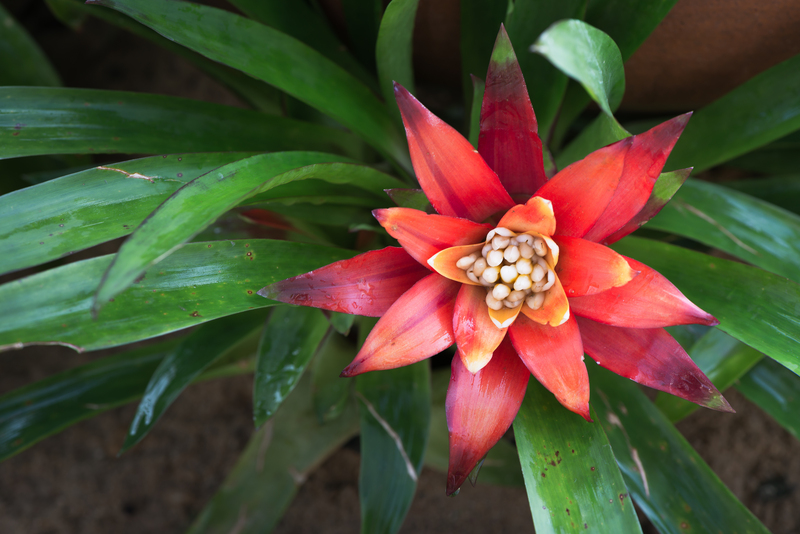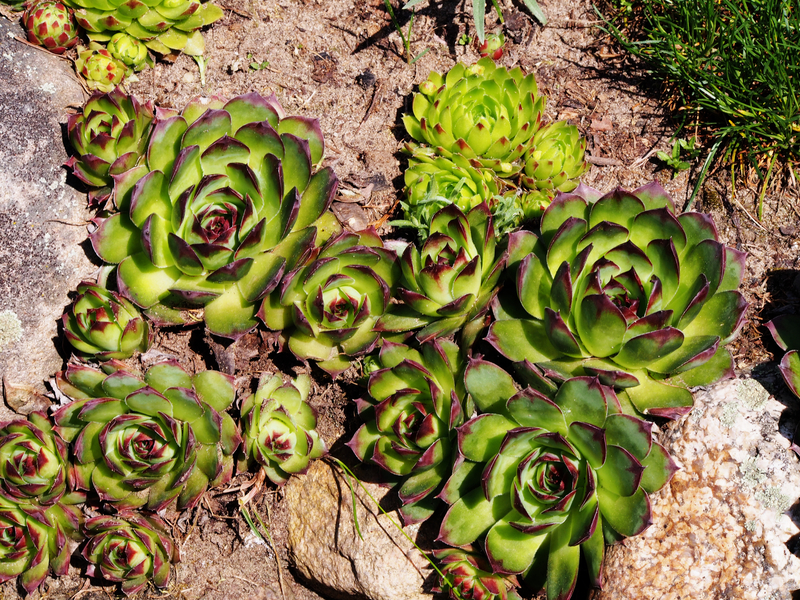Begin Your Gardening Journey: 9 Essential Tips
Posted on 19/06/2025
Begin Your Gardening Journey: 9 Essential Tips
Are you ready to transform your outdoor or indoor space into a lush, thriving haven? Starting your own garden not only beautifies your surroundings but also provides fresh produce, peace of mind, and a rewarding hobby. In this beginner-friendly guide, we'll reveal nine essential tips for beginner gardeners to ensure your gardening journey starts on the right note. Whether your goal is to cultivate stunning flowers or harvest crisp vegetables, put your green thumb to work with these foundational strategies.
1. Assess Your Space and Understand Your Environment
Before planting the first seed, it's crucial to thoroughly assess your garden. Take some time to observe and note the following:
- Sunlight Exposure: How many hours of sunlight does your chosen area receive?
- Soil Type: Is the ground sandy, clayey, or loamy?
- Drainage Patterns: Does rainwater pool, or does it drain quickly?
- Wind and Weather: Are there strong breezes or frost pockets?
These critical factors will influence your plant selection and help you design a garden that thrives in its specific environment.

2. Choose the Right Plants for Your Gardening Journey
One of the most common mistakes in gardening for beginners is mismatching plants with their environment. To set yourself up for success:
- Research native plants and choose those suited to your local climate — they are often lower maintenance.
- For an indoor garden, consider easy-care indoor varieties like pothos, aloe vera, or snake plant.
- For outdoor vegetable gardens, radishes, lettuce, and green beans are great choices for first-time gardeners.
- Start small! You can always expand as your confidence grows.
Remember, selecting plants adapted to your growing conditions is one of the most essential beginner gardening tips.
3. Invest in Quality Soil & Proper Amendments
Good soil is the foundation of any successful garden. Test your garden soil or use a reputable potting mix for containers. To improve soil fertility and structure:
- Incorporate organic material like compost, well-rotted manure, or leaf mold.
- Adjust soil pH with lime or sulfur if necessary (most vegetables prefer a slightly acidic to neutral soil).
- Add mulch to retain moisture, suppress weeds, and protect soil life.
A small investment in soil improvement pays off with strong, healthy plants for seasons to come.
4. Master the Art of Watering
Watering is both a science and an art in gardening. Overwatering can be just as harmful as underwatering! Here's how to get it right:
- Check soil moisture before watering by sticking your finger into the soil; water if it's dry at about an inch deep.
- Water early in the day to minimize evaporation and help prevent fungal diseases.
- Direct water to the base of plants, avoiding wetting the leaves when possible.
- Deep, less frequent watering is better than shallow, frequent watering (this encourages deeper root growth).
Each plant may have unique requirements, so research your specific species' needs as part of your ongoing gardening journey.
5. Plan for Proper Spacing and Layout
Crowded plants compete for resources, leading to poor growth and increased susceptibility to pests and diseases. When planning your garden:
- Read the seed packet or plant label for recommended spacing.
- Account for mature size – it's tempting to fit more in, but overcrowding will backfire.
- Utilize companion planting strategies to make the most efficient use of your space and support plant health.
- In raised beds or containers, try the square foot gardening method for optimal yields in small spaces.
A well-planned layout saves time and reduces frustration as your garden flourishes.
6. Embrace Mulching: Your Garden's Protective Blanket
Mulch serves multiple invaluable roles in the garden:
- Suppresses weeds by blocking sunlight.
- Retains moisture, reducing the need for frequent watering.
- Regulates soil temperature, keeping roots cool in summer and warm in winter.
- As it breaks down, it enriches your soil with organic matter and nutrients.
Use natural mulches such as shredded bark, straw (for vegetables), or compost. Maintain a 2-3 inch layer, avoiding direct contact with plant stems to prevent rot. Incorporating mulching as part of your essential gardening tips guarantees a healthier ecosystem for your plants.
7. Feed Your Plants Wisely
Just like us, plants need the right nutrition to thrive. Over-fertilization can burn roots and kill beneficial soil organisms, while too little can stunt growth. Here's how to strike a balance:
- Use slow-release organic fertilizers or compost for steady nutrient supply.
- Follow package directions — more is not always better.
- Learn the basic needs of your chosen plants; some vegetables and flowers are heavy feeders (e.g., tomatoes, zinnias).
- *Observe plants for signs of nutrient deficiencies*, such as yellowing leaves, and adjust as needed.
Sustainable feeding ensures robust, resilient plants and a more bountiful harvest.
8. Practice Regular Monitoring and Early Intervention
Successful gardening is all about observation. By spending a few minutes each day in your garden, you can catch potential issues early — long before they become major problems. Keep an eye out for:
- Signs of pests such as chewed leaves or unusual webbing.
- Yellowing, wilting, or spots on leaves (possible disease symptoms).
- Stunted growth or discolored foliage indicating nutrient imbalances.
Early action helps maintain plant health and prevents pests or diseases from spreading throughout your garden.
9. Be Patient, Learn, and Document Your Garden Adventure
Perhaps the most essential tip for beginner gardeners is patience. Nature works at its own pace. Daily attention and steady care will eventually reward you with growth you can see and taste!
- Keep a gardening journal to track what works, record plant varieties, note weather patterns, and schedule tasks like watering, feeding, and pruning.
- Take photos of your progress — it's rewarding to look back and see how far you've come.
- Learn from each season; every mistake is a valuable lesson for next year.
- Connect with local gardeners or join online gardening communities for advice and inspiration.
*Gardening is a journey, not a sprint* — each season offers new opportunities and surprises.
Bonus Gardening Tips for Beginners
- Don't overwhelmed: Start with just a few plants or a small plot to build confidence.
- Invest in basic tools: A sturdy trowel, watering can, gloves, and pruners are often all you need.
- Label your plants: It's easy to forget what you've planted, especially in the early days.
- Celebrate small wins: Even tiny seedlings or your first homegrown salad are reasons to be proud!

Common Questions About Beginning a Gardening Journey
Q: Can I start gardening without a backyard?
Absolutely! Container gardening is perfect for balconies, patios, or even window sills. Choose compact or dwarf plant varieties and ensure your containers have good drainage.
Q: How much time does gardening require?
It depends on your garden's size and plant selection. Small container gardens typically require as little as 10-15 minutes a few times a week, while larger vegetable beds may need daily attention. With experience, many gardening tasks become second nature.
Q: Do I need expensive equipment?
Not at all. Start with the basics and invest in quality as needed. Many successful gardens have been grown with little more than hand-me-down tools, recycled containers, and plenty of enthusiasm!
Final Thoughts: Begin Your Gardening Journey With Confidence
*Embarking on your gardening journey* is one of the most rewarding activities you can undertake. From cultivating fresh food to creating vibrant flower beds, the process offers countless benefits for your health, mind, and environment.
Start with a plan, learn as you grow, and don't be afraid to get your hands dirty. Armed with these nine essential gardening tips for beginners, you're well on your way to building a beautiful and bountiful oasis. Happy gardening!
Looking for more tips?
Sign up for our newsletter to receive monthly gardening advice, new plant recommendations, and troubleshooting guides — perfect companions for your ongoing gardening journey.

